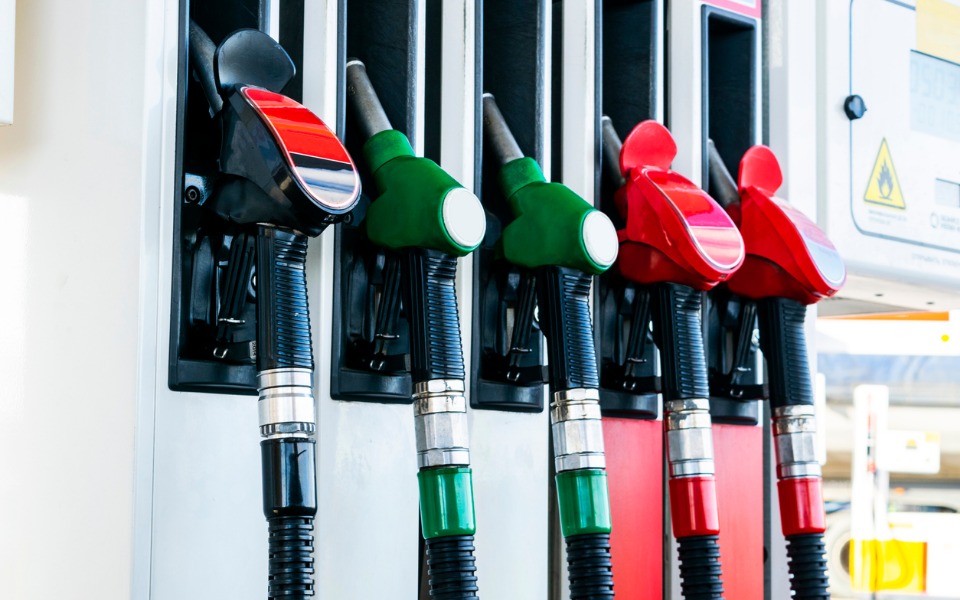
Petrol, diesel near record highs as oil marketing cos hike prices after a month
Fuel prices are at an all-time high as oil marketing companies revised petrol price by 26 paise per litre and diesel by 25 paise/litre on Wednesday (January 6) after a gap of one month. This, despite a global slump in demand for crude oil – a clear indication that Indian oil companies are not willing to relent even as the government stays away from handing out any tax cuts to the common consumer.

Fuel prices are near all-time highs as oil marketing companies revised petrol price upwards by 26 paise per litre and diesel price by 25 paise/litre on Wednesday (January 6) after a gap of a month.
Petrol in Delhi now costs ₹83.97 per litre and diesel ₹74.12 per litre. In Mumbai, diesel price has reached an all-time high of ₹80.78. The highest rate of ₹84 a litre for petrol and ₹75.45 a litre for diesel (both in Delhi) were reached on October 4, 2018. On that day, the government cut excise duty on petrol and diesel by ₹1.50 per litre in a bid to ease inflationary pressure and boost consumer confidence. Alongside, state-owned fuel retailers cut prices by another ₹1 a litre, which they recouped later. However, no tax cut is under consideration as of now, a senior government official said on Wednesday.
Though petrol and diesel rates are to be revised on a daily basis in line with benchmark international price and foreign exchange, government-controlled fuel retailers have been moderating rates since the pandemic broke out. They first did not pass on to the customers a reduction in price warranted from the slump in international oil rates witnessed due to demand erosion beginning March 2020. But they promptly passed on an increase in sales tax by state governments such as in Delhi, and they adjusted a steep increase in excise duty by the central government against the reduction in retail price warranted.
How fuel prices have fluctuated in 2020?
A closer look at oil prices in 2020 makes it evident that the year was a unique one. Even as global price ended the year at about $51 a barrel, near the average for 2015-2017, it masks a year of volatility. In April last year, the US crude plunged deep into negative territory and Brent dropped below $20 per barrel, slammed by the COVID-19 pandemic and a price war between oil giants Saudi Arabia and Russia.
In India, the government raised excise duty by ₹13 per litre on petrol and by ₹15 a litre on diesel in two instalments in March 2020 and May 2020 to garner additional revenue of ₹1.6 lakh crore. That adjustment of rate revision against excise duty hike resulted in a 52-day status quo in prices between March 17, 2020, and June 6, 2020. This was followed by no change in rates between June 30, 2020, and August 15, 2020, and 58-day hiatus in petrol price revision and 48-day status quo on diesel rates from September 22, 2020, and October 2, 2020, respectively. Rates were again frozen after the last revision on December 7, 2020.
Since May 2020, petrol price has risen by ₹14.28 per litre and diesel by ₹11.83 a litre, price notifications of oil companies showed. When petrol scaled to the highest level in Delhi on October 4, 2018, the fuel touched a new high of ₹91.34 in Mumbai. On Wednesday it cost ₹90.60 a litre in Mumbai. Diesel in Mumbai on Wednesday was priced at ₹80.78 a litre, higher than the October 4, 2018, rate of ₹80.10.
Global crude demand
While fuel prices keep surging in India, globally oil prices dropped the most in two weeks with the Organization of the Petroleum Exporting Countries (OPEC) yet to resolve an impasse on whether to keep raising production at a time when the pandemic threatens demand.
Saudi Arabia’s pledge to cut its oil output by more than required under its pact with other OPEC+ producers points to weakening oil demand following new COVID-19 lockdowns and sets the stage for a tighter market in the second quarter, Goldman Sachs said in a note released on Tuesday.
The overall fuel demand, however, is not so bleak. Crude futures in New York earlier approached $50 a barrel — a 10-month high. Early indications of a sooner-than-later rollout of COVID-19 vaccines have stoked optimism around the trajectory for an economic rebound, and oil has emerged as a favoured trade to hedge inflation, Bloomberg reported.
The demand, however, is likely to remain moderate with indications that lockdowns in some countries may be extended. England was ordered into a third coronavirus lockdown and Germany is poised to prolong stricter measures beyond January 10, while Japan is considering another state of emergency for the Tokyo area.
With restrictions on mobility still on the cards, the demand for petrol and diesel will get worse before it gets better, Amrita Sen, co-founder of consultant Energy Aspects Ltd in London told Bloomberg.
(With agency inputs)


